Date: 22 April 2020
Time: 14:00 (GMT+3)
Speaker: Associate Prof. Dr. Mustafa Yucel
Title: Drivers of seafloor metal mobilization in the Modern Ocean and regional seas: Climate impacts and paleoceanographic implications
COVID-19, which influenced the whole world, caused many changes in our daily life. In these challenging days we are living, many of us are working remotely and following the agenda. We, as METU Institute of Marine Sciences, have decided to open up our institute's regularly held scientific seminars to the whole Turkish and international scientific community virtually, which would be a first of its kind in Turkey. In this context, the organized webinars will be on current issues that may be of interest to all marine scientists. Our first webinar will be held by Assoc. Prof. Dr. Mustafa Yucel with the work entitled "Drivers of seafloor metal mobilization in the Modern Ocean and regional seas: Climate impacts and paleoceanographic implications". The talk will be presented in English on the Zoom platform. Please note that there will be a limited number of spots available and the Institute members will be prioritized in case of overbooking. You can register via clicking the link below. After registration, the meeting ID and password will be sent automatically via Zoom.
Abstract
Deep-oceans are largely uncharted but hold many clues to solve scientific challenges. Developments in recent decades unfolded how the deep-sea is coupled to Earth systems and some possible pathways on how they control ocean productivity. In this talk, we will focus on how a phenomenon called redox-dependent metal mobilization across seafloor-deep sea interfaces contribute to biogeochemical cycles in the global ocean and regional seas. The talk will visit a range of deep-sea ecosystems representing major deep-sea sources of metals to the oceans, such as the continental shelves under oxygen minimum zones and deep sea hydrothermal vents. The global importance to understand this stems from the fact that transition metals drive ecosystems as they act as electron acceptors in microbial respiration or as electron donors in chemosynthesis. Metal mineral surfaces store and transport organic carbon and phosphorus, directly coupling biogeochemical cycles. Further, lack of metals (such as iron, Fe) in parts of sunlit ocean limits primary productivity, influencing the amount of anthropogenic CO2 absorbed by oceans. The form, speciation and redox processes of transition metals determine their final impact on marine ecosystems, but our current understanding on these aspects is still limited. Improved knowledge on these aspects will enable better predictions of climate change impacts on oceans and improved interpretation of signatures of past climate changes. We will also highlight the tight interlinkage between biogeochemical cycles and deep-sea ecosystems and how we study deep-sea ecosystems with research submarines, robots, and in-situ sensing technologies.
Biography
Mustafa Yucel obtained a BS degree on Chemical Engineering from Middle East Technical University (METU), Ankara, in 2005. Mustafa then moved to the University of Delaware (USA), and there in 2010, he completed a PhD in Oceanography in the group of Prof. George Luther. Between 2010 and 2012, Mustafa performed postdoctoral studies in France, in the Benthic Ecogeochemistry Laboratory (LECOB) of CNRS and University Pierre and Marie Curie. Then, between February 2013 and April 2015, he worked as a postdoctoral scientist in Germany in GEOMAR – Helmholtz Centre for Ocean Research Kiel. Since April 2015, Mustafa has been appointed as a Faculty Member at METU Institute of Marine Sciences in Turkey and is currently the Vice Director of the institute responsible for research coordination and international collaborations.
Mustafa is interested in biogeochemical cycles in the ocean, geochemical drivers of seafloor ecosystems (vents, seeps, reducing sediments), and the development of novel chemical sensors to study the dynamic environmental processes in situ. Since 2008, he (co)authored a total of 37 publications (10 as a first author). Mustafa also participated in 12 international ocean expeditions (in the Pacific and Atlantic Oceans, Mediterranean, Black Sea, and the Baltic Sea) and 5 submersible dives to the ocean floor.
You can find more information about the speaker and Deep Sea Research Group in following link https://www.deepsearedox.com/





